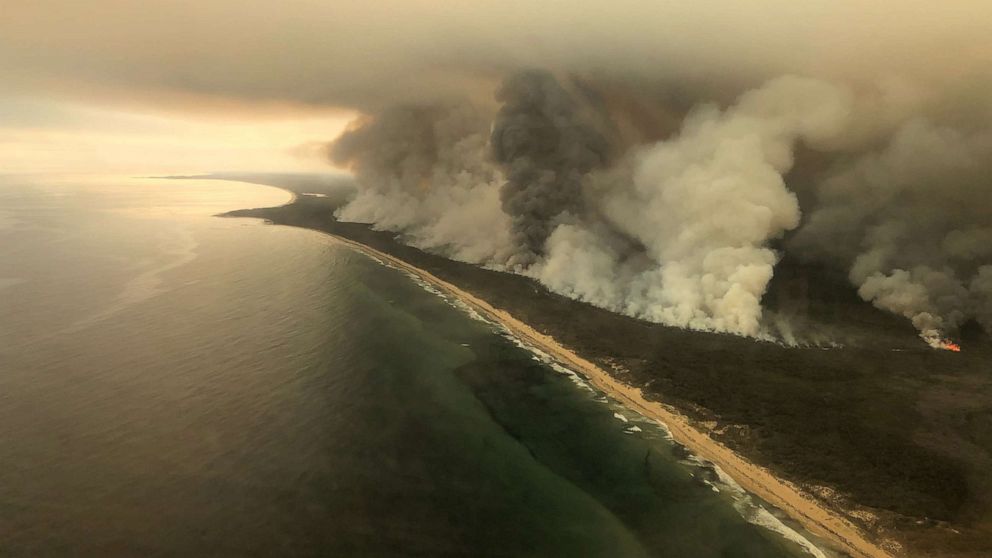US sends additional support to Australia to help battle apocalyptic wildfires
BATEMANS BAY, NEW SOUTH WALES, AUSTRALIA -- Wildfires raged on Saturday in Australia, choking the sky with smoke, forcing thousands to flee and prompting the U.S. to send more fire personnel to help battle the blazes.
The added personnel, nearly two dozen from the U.S. Department of the Interior and U.S. Forest Service, "will continue to support Australia with the resources needed during this unprecedented fire situation," according to a statement from U.S. Forest Service Fire Director Shawna Legarza.
The country's wildfires began in September and are expected to last for several months as the hot weather continues.
As of Saturday, the coast in New South Wales was shrouded in bush fires, according to an interactive map from MyFireWatch.
At points, the flames in Batemans Bay, New South Wales, were so intense that firefighters had to stop battling the wildfires for their own safety.
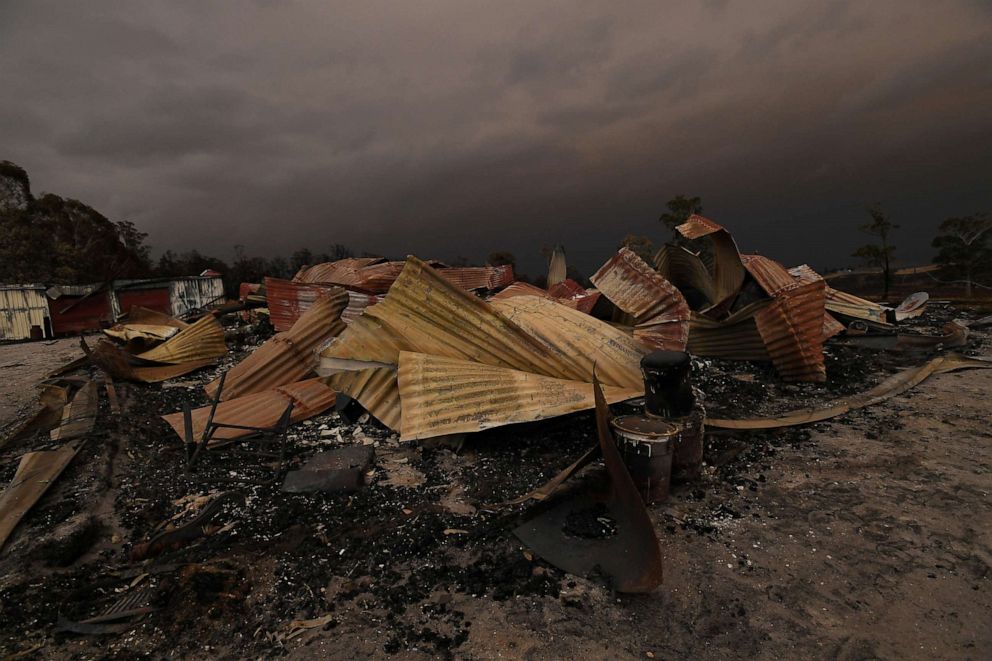
Queensland, Victoria, Western Australia and Southern Australia have also battled wildfires.
The additional support from the U.S. is on top of the more than 74 fire personnel from DOI and USFS that have already been deployed, according to the National Interagency Fire Center.
"Our focus remains on helping the people of Australia and keeping people safe in these unprecedented conditions," DOI Wildland Fire Deputy Director Craig Leff said in a statement.
Residents have described the scene as apocalyptic.
"The blackness, the darkness, the intensity of it. It's like the apocalypse," Lake Conjola resident Paula told ABC News. "It's like something that you've never experienced before."
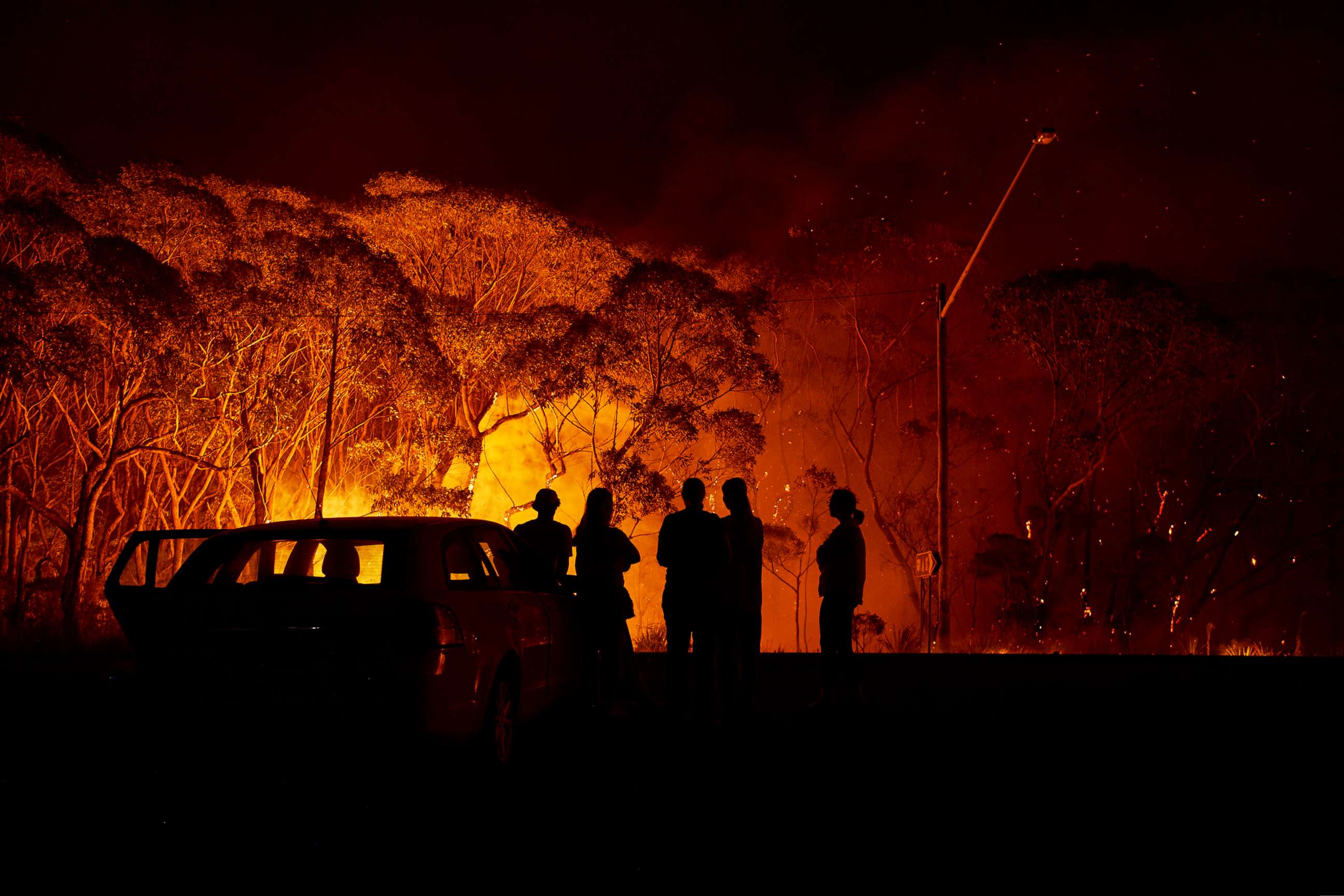
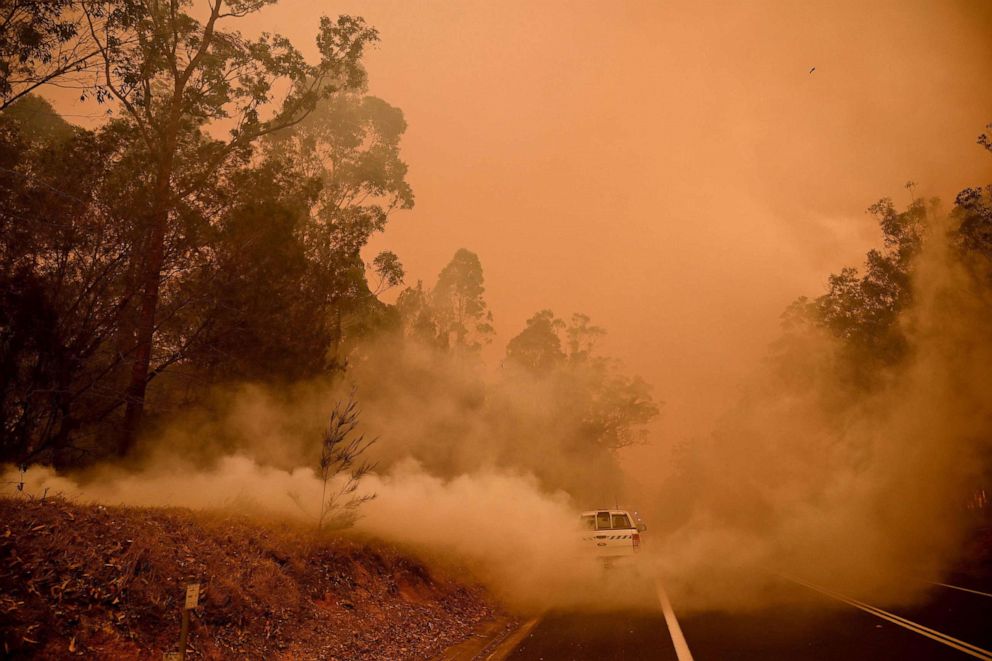
Danielle Heron, who has lived in Batemans Bay her entire life, said she and her family decided to evacuate Saturday after seeing black smoke fill the sky.
"It's time to go," Heron told ABC News.
"The destruction that it's caused, it's just unbelievable," she added.
In towns a few hours south of Sydney, areas normally buzzing with locals and tourists for the summer holidays and New Years have turned into ghost towns.
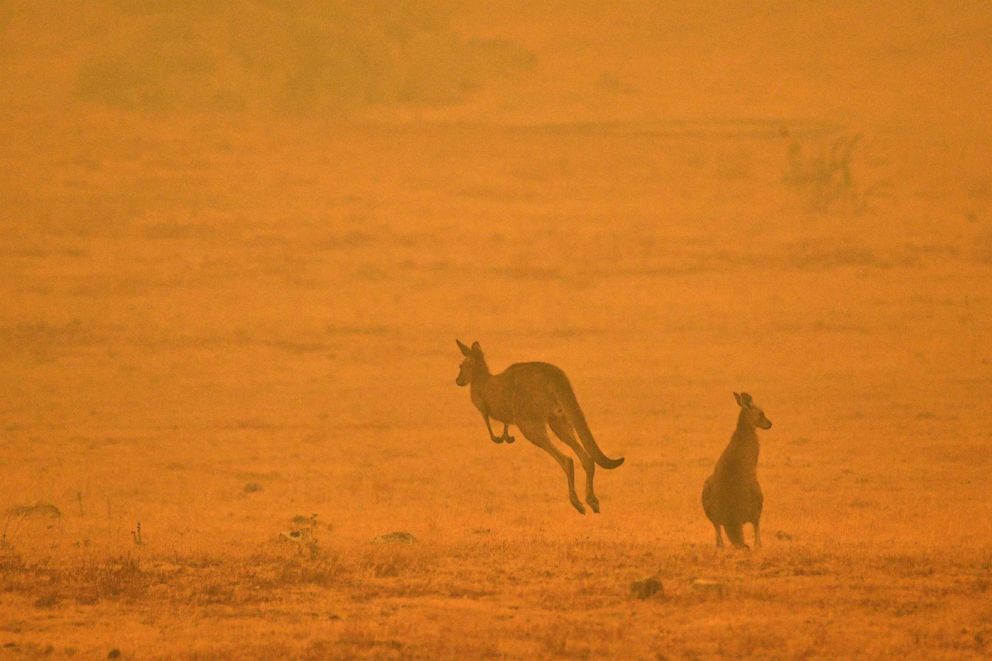
Thousands have evacuated from their homes in the wake of the fires and worsening conditions.
High winds of 100 mph were reported in some communities Saturday and temperatures were well over 100 degrees.
Radio reports pleaded with those who didn't evacuate to shelter in place.
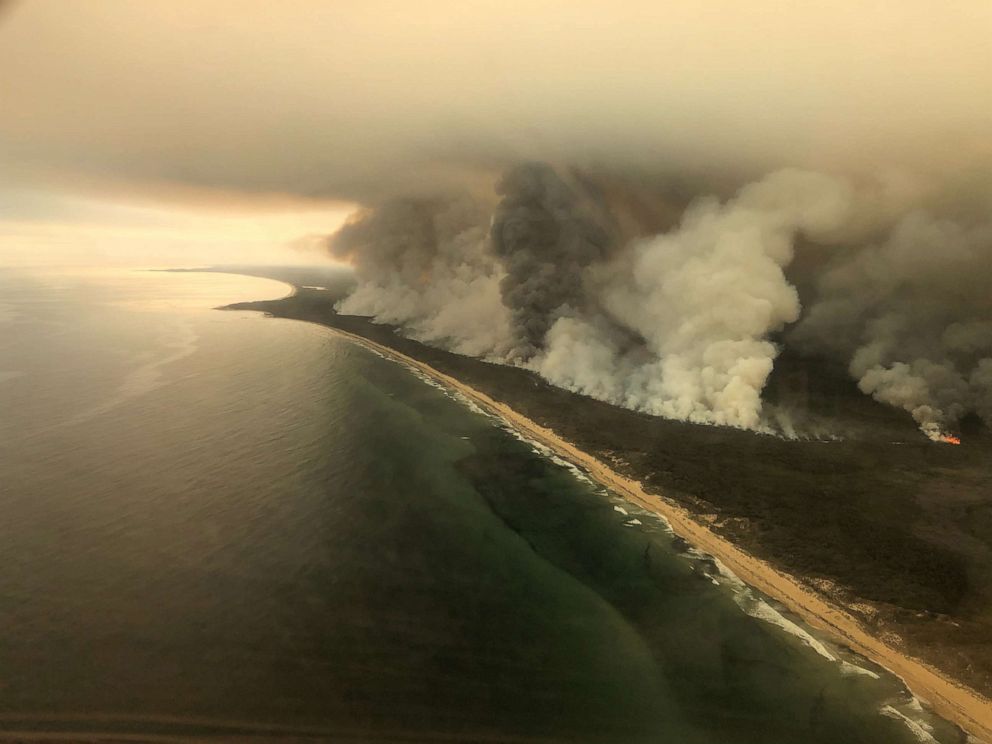
The fires, ignited by a prolonged drought and deforestation, have claimed at least 17 lives and destroyed more than 175 homes, according to the Associated Press.
Nationwide, more than 12.35 million acres of land -- about twice the size of Vermont -- have burned and more than 1,400 homes have been destroyed over the past few months, according to the AP.
Wildlife has also suffered immensely, with University of Sydney ecologists estimating that around 480 million animals have been killed. Koalas in the New South Wales' mid-north coast have lost up to 30% of their population, Australia's minister for the environment, Sussan Ley, told the Australian Broadcasting Corporation.
"This is the worst event this country has ever seen. Without a doubt, horrific," Cheyne Flanagan, director of Koala Hospital in New South Wales, told ABC News in an interview Thursday.
ABC News' Julia Jacobo, Jennifer Harrison, Anthony Trotter and James Gillings contributed to this report.
